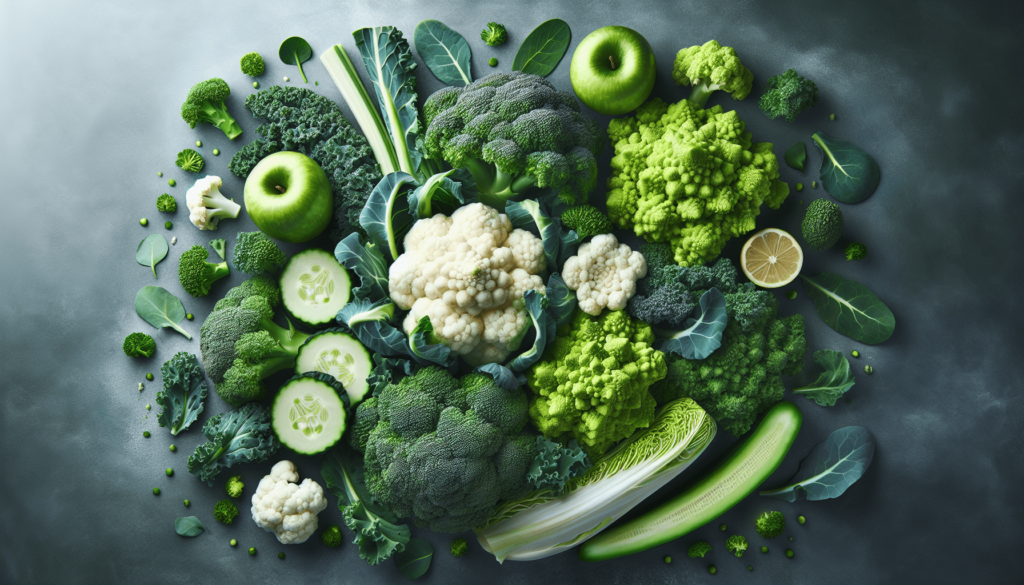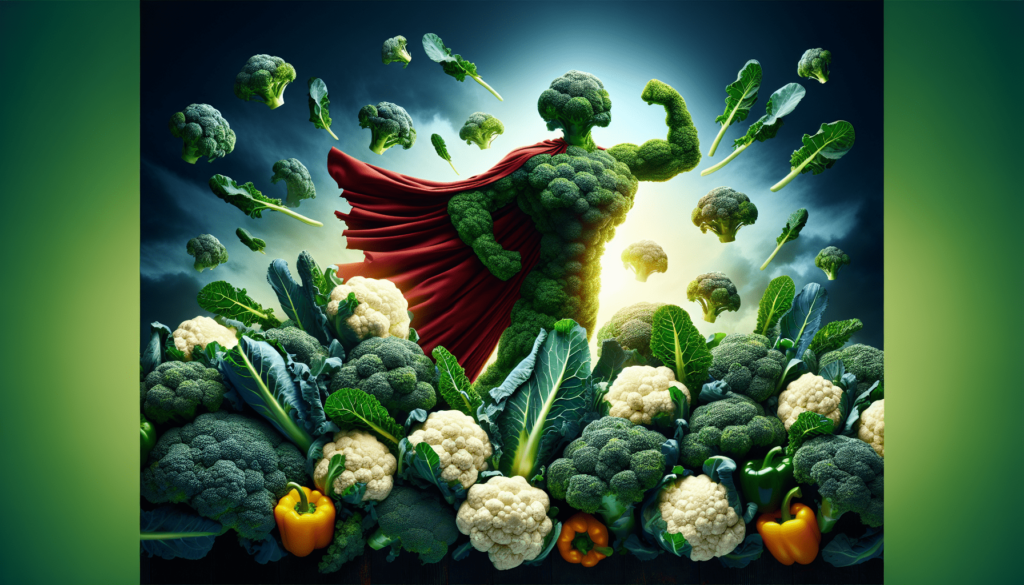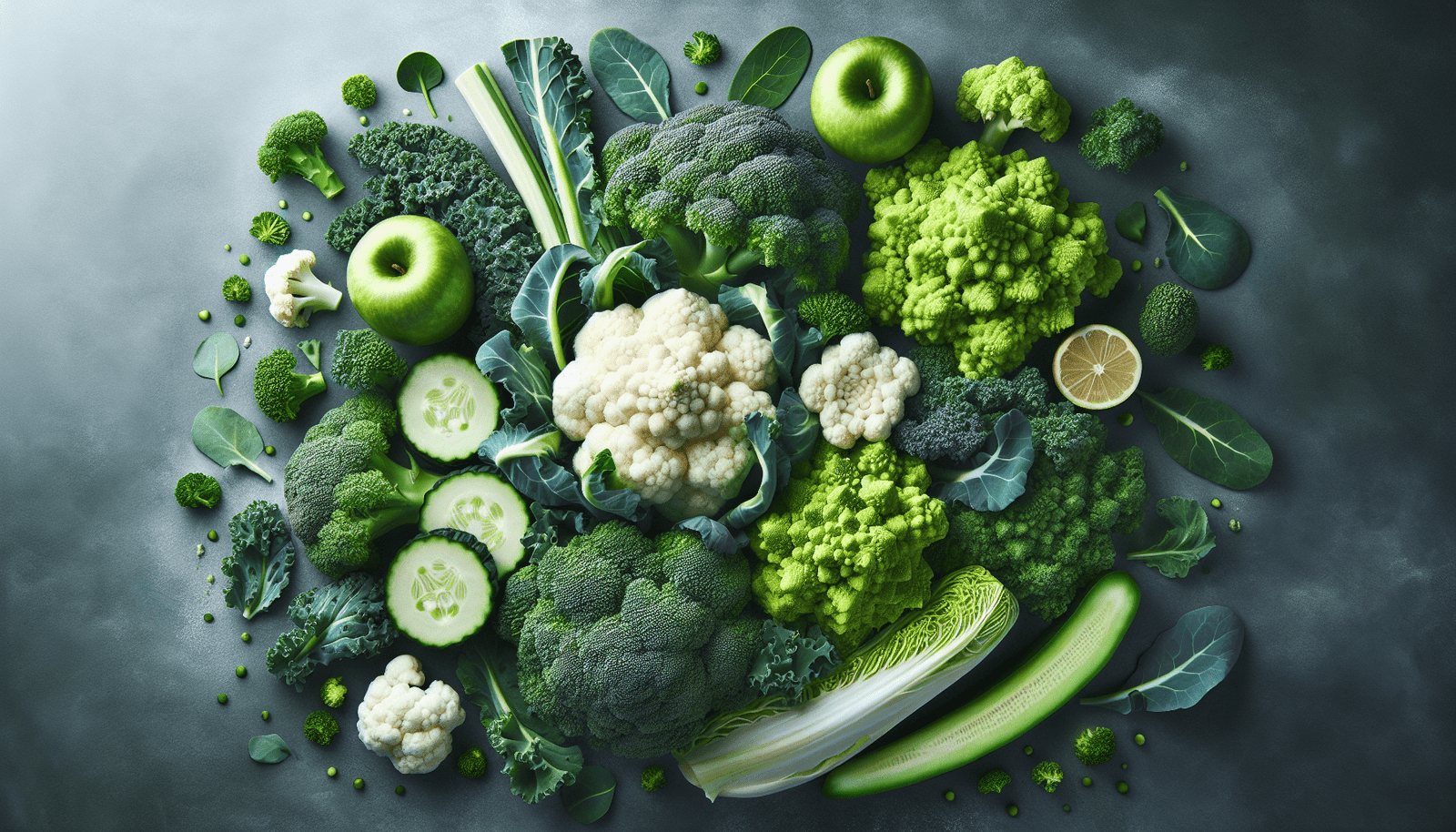Did you know that there are certain vegetables that have the power to help prevent cancer? These vegetables, known as cruciferous vegetables, have been praised for their numerous health benefits. From broccoli to kale, and from cauliflower to Brussels sprouts, these nutrient-rich veggies are packed with antioxidants and other compounds that have been shown to reduce the risk of several types of cancer. In this article, we will explore the fascinating link between cruciferous vegetables and cancer prevention, and how you can incorporate them into your diet for a healthier, cancer-fighting lifestyle. So, let’s dive in and discover the amazing potential of these vegetables in safeguarding your health.

What are cruciferous vegetables?
Cruciferous vegetables are a group of vegetables that belong to the Brassicaceae family. They are named so because their four-petal flowers resemble a cross, which is the shape of a crucifix. Common examples of cruciferous vegetables include broccoli, cauliflower, cabbage, Brussels sprouts, and kale. These vegetables are not only versatile and delicious but are also packed with nutrients that offer numerous health benefits, including a potential role in cancer prevention.
Chemical compounds in cruciferous vegetables
Cruciferous vegetables contain various chemical compounds that contribute to their potential cancer-fighting properties. Let’s explore some of these compounds:
Glucosinolates
Glucosinolates are sulfur-containing compounds that give cruciferous vegetables their distinctive taste and aroma. When these vegetables are chopped, chewed, or cooked, an enzyme called myrosinase is activated, which converts the glucosinolates into bioactive compounds. These bioactive compounds are known for their potential anti-cancer effects.
Indole-3-carbinol
Indole-3-carbinol is a compound found in cruciferous vegetables that has gained attention for its potential role in cancer prevention. It has been studied for its ability to inhibit the growth of cancer cells and modulate various signaling pathways involved in cancer development.
Isothiocyanates
Isothiocyanates are a class of compounds that are formed when glucosinolates are broken down. These compounds have been extensively studied for their potential anti-cancer activities, including their ability to promote apoptosis (cell death) in cancer cells and inhibit their growth.
Mechanisms of cancer prevention
The cancer prevention properties of cruciferous vegetables can be attributed to several mechanisms. Let’s take a closer look at some of the key mechanisms:
Antioxidant activity
Cruciferous vegetables are rich in antioxidants, which help neutralize harmful free radicals in the body. Free radicals are unstable molecules that can damage cells and DNA, leading to cancer development. By scavenging these free radicals, the antioxidants in cruciferous vegetables help reduce the risk of cancer.
Detoxification enzymes induction
Certain compounds present in cruciferous vegetables, such as isothiocyanates, have been found to stimulate the production of detoxification enzymes in the body. These enzymes play a crucial role in breaking down and eliminating potentially harmful substances, including carcinogens, making cruciferous vegetables an important dietary choice for cancer prevention.
Anti-inflammatory effects
Chronic inflammation is associated with an increased risk of cancer. Cruciferous vegetables contain compounds that possess anti-inflammatory properties, helping to reduce inflammation in the body. By reducing chronic inflammation, these vegetables may contribute to a decreased risk of cancer.
Evidence from epidemiological studies
Numerous epidemiological studies have been conducted to investigate the relationship between cruciferous vegetable intake and cancer incidence. The findings from these studies suggest a potential protective effect of cruciferous vegetables against various types of cancer.
Cancer incidence and cruciferous vegetable intake
Several studies have shown an inverse association between cruciferous vegetable consumption and the risk of certain cancers, such as lung, breast, colorectal, and prostate cancer. Higher intake of cruciferous vegetables has been associated with a lower risk of developing these cancers.
Influence of cooking methods
The way cruciferous vegetables are cooked can affect their cancer-fighting properties. Some studies suggest that by lightly steaming or stir-frying cruciferous vegetables, their bioactive compounds are better preserved, allowing for greater potential health benefits. However, more research is needed to fully understand the impact of different cooking methods on the cancer prevention properties of these vegetables.

Laboratory studies on cruciferous vegetables and cancer
In addition to epidemiological studies, laboratory studies, including in vitro experiments and animal studies, have provided further insight into the potential anti-cancer effects of cruciferous vegetables.
In vitro experiments
In vitro experiments involve studying the effects of cruciferous vegetable extracts or compounds on cancer cells in a controlled laboratory setting. These studies have shown that the bioactive compounds present in cruciferous vegetables can inhibit cancer cell growth, induce apoptosis, and interfere with various signaling pathways involved in cancer development.
Animal studies
Animal studies provide valuable evidence regarding the potential efficacy of cruciferous vegetables as a means of cancer prevention. These studies have demonstrated that consuming cruciferous vegetable extracts or diets enriched with cruciferous vegetables can reduce the incidence, growth, and spread of certain types of cancer in animals.
Clinical trials and cruciferous vegetables
While epidemiological and laboratory studies provide valuable insights, clinical trials involving human participants offer a more direct assessment of the cancer-preventive properties of cruciferous vegetables.
Human trials with cruciferous vegetable supplements
Several clinical trials have investigated the effects of cruciferous vegetable supplements, such as broccoli sprout extracts or powdered forms of cruciferous vegetables, on markers of cancer risk. These trials have shown promising results, including improved detoxification enzyme activity and reduced oxidative stress, indicating a potential role in cancer prevention.
Chemopreventive properties
Clinical trials have also focused on evaluating the chemopreventive properties of cruciferous vegetables. Although more research is needed, some studies have suggested that regular consumption of these vegetables may have a beneficial effect on preventing the initiation, progression, and recurrence of cancer.
Specific cruciferous vegetables and their cancer-fighting potential
Different cruciferous vegetables may vary in their cancer-fighting potential due to variations in their chemical composition. Here is a closer look at some specific cruciferous vegetables and their potential benefits:
Broccoli
Broccoli is often hailed as a superfood due to its numerous health benefits, including its potential cancer-fighting properties. It is packed with glucosinolates, particularly sulforaphane, which have been extensively studied for their anti-cancer effects. Broccoli consumption has been associated with a reduced risk of lung, colorectal, breast, and prostate cancers.
Cauliflower
Cauliflower is another cruciferous vegetable that is rich in glucosinolates and bioactive compounds. It contains sulforaphane, which has shown promise in inhibiting the growth of various cancer cells in laboratory studies. While more research is needed, regular consumption of cauliflower has been associated with a lower risk of colorectal and lung cancers.
Cabbage
Cabbage is a versatile vegetable that comes in various forms, including green, red, and Savoy cabbage. It is a good source of glucosinolates and other phytochemicals that have been linked to potential cancer prevention. Regular cabbage consumption has been associated with a reduced risk of breast, lung, and colorectal cancers.
Brussels sprouts
Brussels sprouts are small, green cruciferous vegetables that are rich in glucosinolates, including sinigrin. These compounds have shown promising anti-cancer effects in laboratory studies. Consumption of Brussels sprouts has been associated with a reduced risk of colorectal, lung, and breast cancers.
Kale
Kale is a nutrient-dense leafy green vegetable that is known for its high content of vitamins, minerals, and antioxidants. It also contains glucosinolates and other bioactive compounds with potential anti-cancer properties. Regular kale consumption has been linked to a lower risk of certain cancers, including breast and colon cancer.
Optimal consumption and cooking practices
To maximize the potential cancer-fighting benefits of cruciferous vegetables, it is important to consider optimal consumption and cooking practices.
Recommended intake
The exact recommended intake of cruciferous vegetables may vary depending on factors such as age, sex, and overall health. However, including a variety of cruciferous vegetables in your diet several times a week is generally recommended to reap their potential health benefits, including cancer prevention.
Raw vs. cooked
Both raw and cooked cruciferous vegetables offer health benefits, but the cooking process can influence their bioavailability and concentration of bioactive compounds. Some research suggests that consuming a combination of raw and cooked cruciferous vegetables may be beneficial to obtain a diverse range of nutrients and bioactive compounds.
Steaming vs. boiling
When it comes to cooking cruciferous vegetables, steaming is often considered a better option than boiling. Steaming helps retain more nutrients and minimizes the loss of water-soluble compounds. It is recommended to steam cruciferous vegetables for a short period to preserve their nutritional value while still achieving a desirable texture.
Other health benefits of cruciferous vegetables
In addition to their potential role in cancer prevention, cruciferous vegetables offer several other health benefits.
Cardiovascular health
Cruciferous vegetables are rich in fiber, vitamins, and minerals, which contribute to cardiovascular health. Regular consumption of these vegetables has been associated with a reduced risk of heart disease, high blood pressure, and stroke.
Digestive health
The fiber content in cruciferous vegetables promotes healthy digestion. It adds bulk to the stool, aiding in regular bowel movements and preventing constipation. Additionally, cruciferous vegetables contain compounds that support the growth of beneficial gut bacteria, promoting a healthy gut microbiome.
Weight management
Cruciferous vegetables are low in calories and packed with nutrients, making them a valuable addition to a weight management plan. Their high fiber content promotes satiety, helping to control appetite and prevent overeating. Additionally, their low energy density makes them a great choice for those aiming to lose or maintain weight.
Potential considerations and precautions
While cruciferous vegetables offer numerous health benefits, it is important to consider a few potential considerations and precautions.
Interactions with certain medications
Some compounds present in cruciferous vegetables, such as vitamin K and glucosinolates, may interfere with the effectiveness of certain medications, such as blood thinners. If you are taking any medication, it is recommended to consult with your healthcare provider to determine any potential interactions.
Thyroid and cruciferous vegetable consumption
Cruciferous vegetables contain substances known as goitrogens, which can interfere with thyroid function in large amounts. However, the impact of goitrogens on thyroid health is minimal when consumed as part of a balanced diet. If you have a thyroid condition, it is advisable to discuss cruciferous vegetable consumption with your healthcare provider.
Individual sensitivities
Some individuals may experience digestive discomfort, such as gas or bloating, after consuming cruciferous vegetables. If you notice any adverse reactions, it may be helpful to experiment with different cooking methods or consume smaller portions to determine what works best for you.
In conclusion, cruciferous vegetables offer a wide array of potential health benefits, including their role in cancer prevention. From their rich content of glucosinolates and other bioactive compounds to their antioxidant, anti-inflammatory, and detoxification properties, these vegetables have garnered significant attention in the field of nutrition and cancer research. By incorporating a variety of cruciferous vegetables into your diet and considering optimal cooking practices, you can maximize their potential health benefits while enjoying their delicious flavors. Remember to consult with a healthcare provider for personalized advice, especially if you have any underlying health conditions or are taking medications. Cheers to your health and enjoying the goodness of cruciferous vegetables!

